Filter by
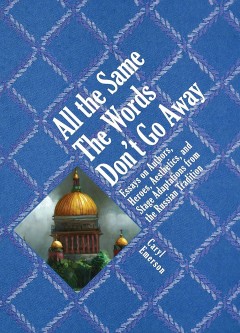
All the Same The Words Don't Go Away : Essays on Authors, Heroes, Aesthetics,…
Twenty-five years of essays and reviews, linked loosely by three themes. First is the creative potential inherent in transposing classic literary texts into other genres of media (operatic, dramatic) and the responsibilities, if any, that govern the transposer, audience, and critic. The practice of transposition, however, gives rise to a creative conflict: is there a limit to the amount of orna…
- Edition
- -
- ISBN/ISSN
- 9781934843819
- Collation
- -
- Series Title
- -
- Call Number
- 800 EME a
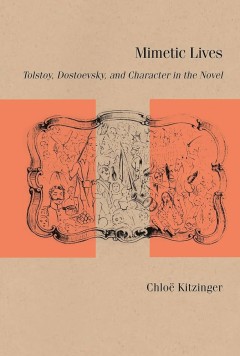
Mimetic Lives : Tolstoy, Dostoevsky, and Character in the Novel
What makes some characters seem so real? Mimetic Lives explores this unprecedented question on the rich ground of Tolstoy’s and Dostoevsky’s fiction. Each author discovered techniques for intensifying the aesthetic illusion Kitzinger calls mimetic life: the reader’s sense of a character’s embodied existence. Both authors tested the limits of that illusion by pushing it toward the novel�…
- Edition
- -
- ISBN/ISSN
- 9780810143975
- Collation
- 256 halaman
- Series Title
- -
- Call Number
- 800 KIT m
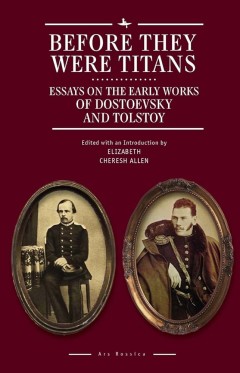
Before They Were Titans : Essays on the Early Works of Dostoevsky and Tolstoy
Dostoevsky and Tolstoy are the titans of Russian literature. As mature artists, they led very different lives and wrote vastly different works, but their early lives and writings display provocative kinships, while also indicating the divergent paths the two authors would take en route to literary greatness. The ten new critical essays here, written by leading specialists in nineteenth-century …
- Edition
- -
- ISBN/ISSN
- 9781618116833
- Collation
- -
- Series Title
- -
- Call Number
- 800 ALL b
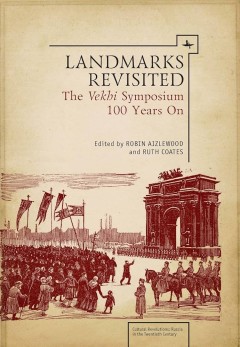
Landmarks Revisited : The Vekhi Symposium One Hundred Years On
The symposium entitled Vekhi, or Landmarks, is one of the most famous publications in Russian intellectual and political history. Its fame rests on the critique it offers of the phenomenon of the Russian intelligentsia. It was published in 1909, under the editorship of Mikhail Gershenzon, as a polemical response to the revolution of 1905, the failed outcome of which was deemed by all the Landma…
- Edition
- -
- ISBN/ISSN
- 9781618117021
- Collation
- 324 halaman
- Series Title
- Cultural Revolutions: Russia in the Twentieth Century
- Call Number
- 800 AIZ l
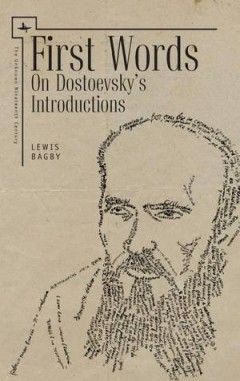
First Words : On Dostoevsky's Introductions
Dostoevsky attached introductions to his most challenging narratives, including Notes from the House of the Dead, Notes from Underground, The Devils, The Brothers Karamazov, and A Gentle Creature. Despite his clever attempts to call his readers' attention to these introductions, they have been neglected as an object of study for over 150 years. That oversight is rectified in First Words, the fi…
- Edition
- -
- ISBN/ISSN
- 9781618114822
- Collation
- -
- Series Title
- -
- Call Number
- 800 BAG f
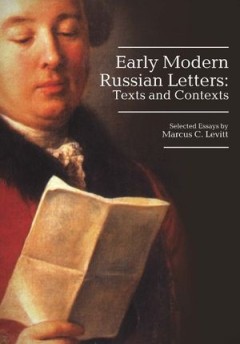
Early Modern Russian Letters : Texts and Contexts
Early Modern Russian Letters: Texts and Contexts brings together twenty essays by Marcus C. Levitt, a leading scholar of eighteenth-century Russian literature. The essays address a spectrum of works and issues that shaped the development of modern Russian literature, from authorship and philosophy to gender and religion in Russian Enlightenment culture. The first part of the collection explores…
- Edition
- -
- ISBN/ISSN
- 9781934843680
- Collation
- -
- Series Title
- -
- Call Number
- 800 LEV e
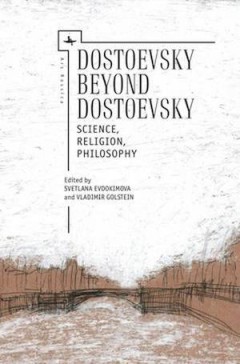
Dostoevsky beyond Dostoevsky : Science, Religion, Philosophy
Dostoevsky beyond Dostoevsky is a collection of essays with a broad interdisciplinary focus. It includes contributions by leading Dostoevsky scholars, social scientists, scholars of religion and philosophy. The volume considers aesthetics, philosophy, theology, and science of the 19th century Russia and the West that might have informed Dostoevsky's thought and art. Issues such as evolutionary …
- Edition
- -
- ISBN/ISSN
- 9781618115263
- Collation
- 424 halaman
- Series Title
- Ars Rossica
- Call Number
- 100 EVD d
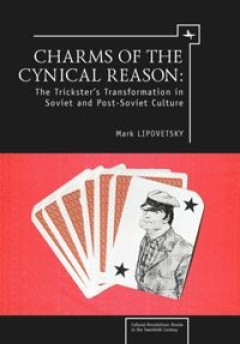
Charms of the Cynical Reason : The Trickster's Transformation in Soviet and P…
The impetus for Charms of the Cynical Reason is the phenomenal and little-explored popularity of various tricksters flourishing in official and unofficial Soviet culture, as well as in the post-Soviet era. Mark Lipovetsky interprets this puzzling phenomenon through analysis of the most remarkable and fascinating literary and cinematic images of soviet and post-Soviet tricksters, including such …
- Edition
- -
- ISBN/ISSN
- 9781934843451
- Collation
- -
- Series Title
- -
- Call Number
- 800 LIP c

Chapaev and His Comrades : War and the Russian Literary Hero Across the Twent…
Across the twentieth century war was the central experience of the Russian people, spurring tales of the struggles and advances of the combat hero to become a prevailing Russian literary trope. In this wide spanning text Brintlinger traces the war experiences, memories, tropes, and metaphors in literature of the Soviet and post-Soviet period, examining the work of Dmitry Furmanov, Fyodor Gladko…
- Edition
- -
- ISBN/ISSN
- 9781618116932
- Collation
- -
- Series Title
- -
- Call Number
- 800 BRI c
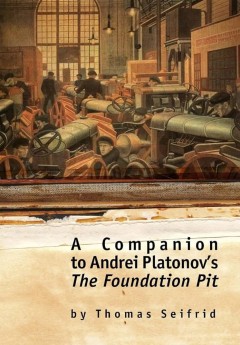
A Companion to Andrei Platonov's "The Foundation Pit" : Studies in Russian an…
Written at the height of Stalin's first "five-year plan" for the industrialization of Soviet Russia and the parallel campaign to collectivize Soviet agriculture, Andrei Platonov's The Foundation Pit registers a dissonant mixture of utopian longings and despair. Furthermore, it provides essential background to Platonov's parody of the mainstream Soviet "production" novel, which is widely recogni…
- Edition
- -
- ISBN/ISSN
- 9781618116970
- Collation
- -
- Series Title
- -
- Call Number
- 800 SEI c
 Computer Science, Information & General Works
Computer Science, Information & General Works  Philosophy & Psychology
Philosophy & Psychology  Religion
Religion  Social Sciences
Social Sciences  Language
Language  Pure Science
Pure Science  Applied Sciences
Applied Sciences  Art & Recreation
Art & Recreation  Literature
Literature  History & Geography
History & Geography